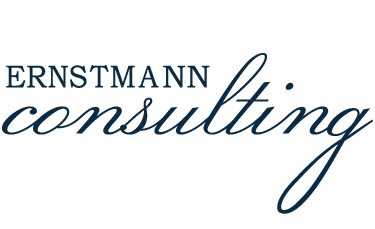Executive Coaching
“Talisa’s executive coaching approach offered me a very creative and individualized opportunity for leadership development. Her use of co-active tools to identify professional and personal areas for development led to a very clear vision for our coaching sessions. By owning the identification of developmental goals and techniques for improvement, I will be able to build on this engagement for many years.”
In the results-oriented environment that most leaders are a part of, it is easy to lose sight of the value of real connection, intimacy, self-awareness, and development of others - the very qualities that inform, inspire, and give our lives fulfillment and meaning.
The business world is more dynamic and complex than ever. Our economic, political, demographic and technological environments shift daily. The need for leaders to communicate, collaborate and commit is urgent. At Ernstmann Consulting we help leaders meet this challenge through executive coaching that is both reflective and action oriented. We define leaders as anyone who must influence others towards the accomplishment of a goal. Thus, leaders need not have subordinates to be good candidates for coaching. Anyone who desires to grow, learn and perform at a higher level is a good candidate for executive coaching.
Our coaches have extensive training through Coaches Training Institute (CTI). CTI was the first school to receive accreditation through the International Coaching Federation. It is currently the largest coaching training school in the world, and its results are fully supported by current scientific research. All of our coaches have completed more than 100 hours of formal training and coaching.
Discovery: During the discovery phase of executive coaching, coachees learn more about themselves and their goals. We use a variety of tools that give coachees feedback on their performance and their strengths and weaknesses:
- Multi-rater Feedback - We use several multi-rater assessments (also known as 360-degree feedback assessments) where leaders receive performance feedback from their boss, peers, subordinates and others on what they are doing well and what they could improve. Once they receive this feedback, they meet with one of our coaches to design an action plan for improvement.
- Style Assessments - We encourage the use of several instruments, such as values assessments, the Myers-Briggs Indicator and others, to help leaders learn more about themselves and how best to motivate and lead their people. We help leaders use this information to create development plans that leverage strengths and improve weaknesses.
- Team Interviews - Early in the coaching process we interview the coachees’ peers, subordinates (if any) and leader. Themes from interviews are compiled and this information, along with mutli-rater feedback and style assessments are used to create a coaching development plan.
- Coaching Development Plan - After data has been collected on the coachees’ strengths and weaknesses, the coachee formulates a development plan with the coach’s assistance. This plan is the basis for on-going coaching, learning and self-evaluation.
- Coaching Sessions - A standard coaching plan includes either 12 sessions over a 6-month period or 24 sessions over 1 year. The Coachee determines the areas of coaching (with manager input) and the Coach provides an array of educational materials and assignments designed to reinforce gains made during the coaching sessions.
- Reinforcement Action Planning - The Participant and Coach discuss an action plan for ways the Coach can reinforce and sustain gains made during the coaching phase. A "review" meeting including the same participants from the initial agenda-setting group is held and progress is reviewed, action plans shared, and prognostic implications discussed.

